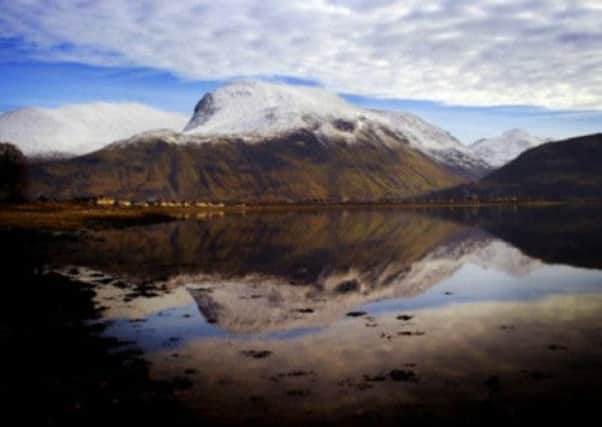Guiding tourists to Scotland’s burning questions


I have explained that Bens or beinns are mountains; that Scotland does indeed get rainbows; that there isn’t a time for “low tea”; and that the sheep are not needed just to keep the grass short…all part of the job as a guide, although I admit to having been flummoxed by this one as we stepped off the coach for our comfort break: “Do I need the toilet now?”
Of course, there are plenty more common questions to be answered about our landscape, weather, buildings, fields, language(s), Royal Family, haggis, whisky and, inevitably these days, about independence (of which, more later).
Advertisement
Hide AdAdvertisement
Hide AdAnswering tourists’ questions is the lifeblood of guiding, without which there is a danger of one-way traffic – a tedious history or geography lecture. Questions tell us what the tourist finds intriguing about Scotland and create a dynamic dialogue on the tour. Questions involve the visitor personally and they challenge the guide to keep up to date and not simply recite old lecture notes.
Weather
Take the weather. We always explain the predominant winds across the Gulf Stream creating our temperate maritime climate – yes, it rains a lot but not too much snow – but we can’t ignore climate change. This year, we had the coldest spring in 50 years, affecting the lambing, the crops, the flowering of roadside plants. But then we had the second warmest July since records began in 1910. This is vital to explain because “scenery” remains the top reason for visiting Scotland, however much we invest in urban sophistication (e.g. tram systems).
Royalty is fascinating for most visitors, although I point out that 40 per cent of Scots (whatscotlandthinks.org) would opt for a monarchy-free republic. This year, the birth of George Alexander Louis has given guides a juicy topic to get their teeth into, following last year’s Diamond Jubilee and 2011’s Royal wedding. Current news about the Royal Family leads us neatly into more arcane matters such as the Union of the Crowns, the Royal Stewart tartan, the roles of Balmoral Castle, the Palace of Holyroodhouse and so on.
Sport is a topic I raise even if no-one asks me about it, often when driving past a golf course. (Why golf is not Scotland’s true “national sport”, rather than football, is a rhetorical question of my own.) Again, it’s important to keep up to date, so recently I’ve had a lot to say (proudly) about tennis, cycling and women’s curling. There is even more sport for guides to gen up on for 2014, with the Ryder Cup at Gleneagles and the Commonwealth Games in Glasgow (for which STGA guides have been specially trained).
Independence
And so to questions about independence. To start with, the impact of Mel Gibson’s Braveheart should never be under-estimated: I don’t ask if they have seen it; I ask if anyone hasn’t seen it. Nowadays, images of Scotland for the first-time visitor have been shaped by modern media so we have had to keep abreast of the likes of Harry Potter, The Da Vinci Code (Rosslyn Chapel) and Downton Abbey (episode filmed at Inveraray Castle).
The referendum question on 18 September, 2014 will be: “Should Scotland be an independent country?” but we are already asked “Will Scotland be independent?” (errr…) “Are you in favour yourself?” (errr...!!) and “What do the English think?”
In reply, I use “don’t know” because we just don’t know how things might pan out at this early stage. Meanwhile, I stress that Scotland already has plenty of staunchly “independent” institutions – the Church of Scotland, our education system and even the role of the monarchy are uniquely Scottish. Most day-to-day matters affecting citizens or visitors – environment, travel, health care, drink licensing laws et al – are already governed within Scotland.
Irrespective of the referendum vote, one event in 2014 will be warmly welcomed by Scottish tourism: the re-opening of the Bannockburn heritage centre, celebrating the 700th anniversary of the battle. The new centre will put Bannockburn back on many guides’ and tour companies’ itineraries just where it should be – at the heart of Scotland both geographically and historically.
• Dave Tucker is chair of the Highlands & Islands branch of the Scottish Tourist Guides Association www.stga.co.uk